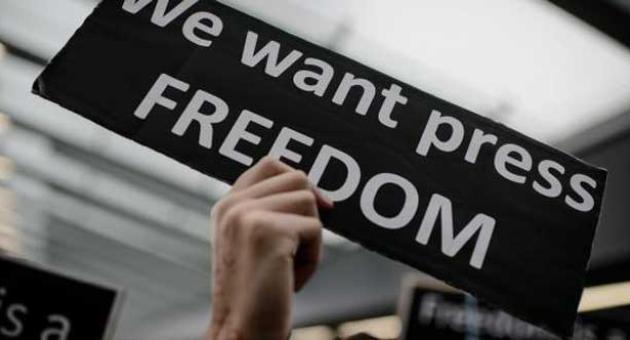Journalists have been attacked time and time again in Malta. Not quite at the level of the “unthinkable” act that was committed on Daphne Caruana Galizia. Yet libel suits are filed at alarming ease against journalists by public figures and business people.
When what was written was nothing but the truth, such suits are an abusive use of the law and an unjustified attack on that journalist.
That is not to say that some libel suits are not well-founded. However, it is equally true to say that many are vexatious and that in such instances libel is just a tool in the hands of those with bad intentions, to kill a story which is in the public interest to save their unworthy skin. The benefits to the plaintiff are immediate.
The common perception is that when one files a claim for libel, then the journalist must be saying an untruth. What effectively happens is that the person concerned wins very valuable time, kills the story when it is at its peak, a story which may have cost that person his political hide or some business deal.
The case then languishes in court for years. The thought of this alone would be enough for most to exercise restraint when publishing a story. The time that one would need to spend travelling to and from Valletta to defend a story over the course of years is real. The risk of pecuniary damages, especially if a source cannot be revealed, is a real possibility.
Most journalists are not paid enough to take that risk, and to a cash-strapped media organisation this alone is enough to err on the side of caution. Being a real journalist is not for the faint-hearted. When Caruana Galizia was assassinated there were over 40 such cases pending in court against her.
The risk for he or she filing the libel case? None, really – except for court and lawyer fees.
So with the new Media and Defamation Bill, would this not be a good time to introduce severe penalties for those filing vexatious libel cases?
The new law as proposed by the government last Wednesday narrows the scope of the problem by limiting libels to statements which “cause serious reputation to the individual”. Another change is that it would no longer be possible for an individual to file multiple libel suits on separate stories which deal with the same allegedly libellous claim – as Silvio Debono did when he filed 19 separate libel cases against Caruana Galizia. But changes can be bolder to further restrict the instances when the law is abused.
The case for this is strong. The courts are buckling under the sheer weight of their case load. The legislator should take serious umbrage with those who increase such case load using up precious resources not to mention taxpayers’ funds when they know full well they have not been defamed.
It should be in the legislator’s interest to protect the public interest and this would not have been served as the story would probably have long lost its importance by the time a final judgement is delivered. So even in losing, the plaintiff would have achieved his goal. All this should be taken into consideration when meting out judgement.
The journalist too should be compensated, not just for expenses incurred but also for all the time wasted to defend a case where the plaintiff knew that what the journalist wrote was the truth. However, this too is not enough. The value to the person filing the vexatious law suit could far exceed the actual damages caused to the defendant. The penalty needs to be proportionate to that value. It needs to hurt.
So what would be a proportionate penalty? To my mind, anyone who is in public office who files a libel case when they knowingly knew that what was written was the truth, should be immediately disqualified from public office. As for a businessman, the penalty should be proportionate to the turnover of his business interests. In both instances, jail time should be considered.
Draconian? Perhaps, but only then would one really be wary of abusing the law.













